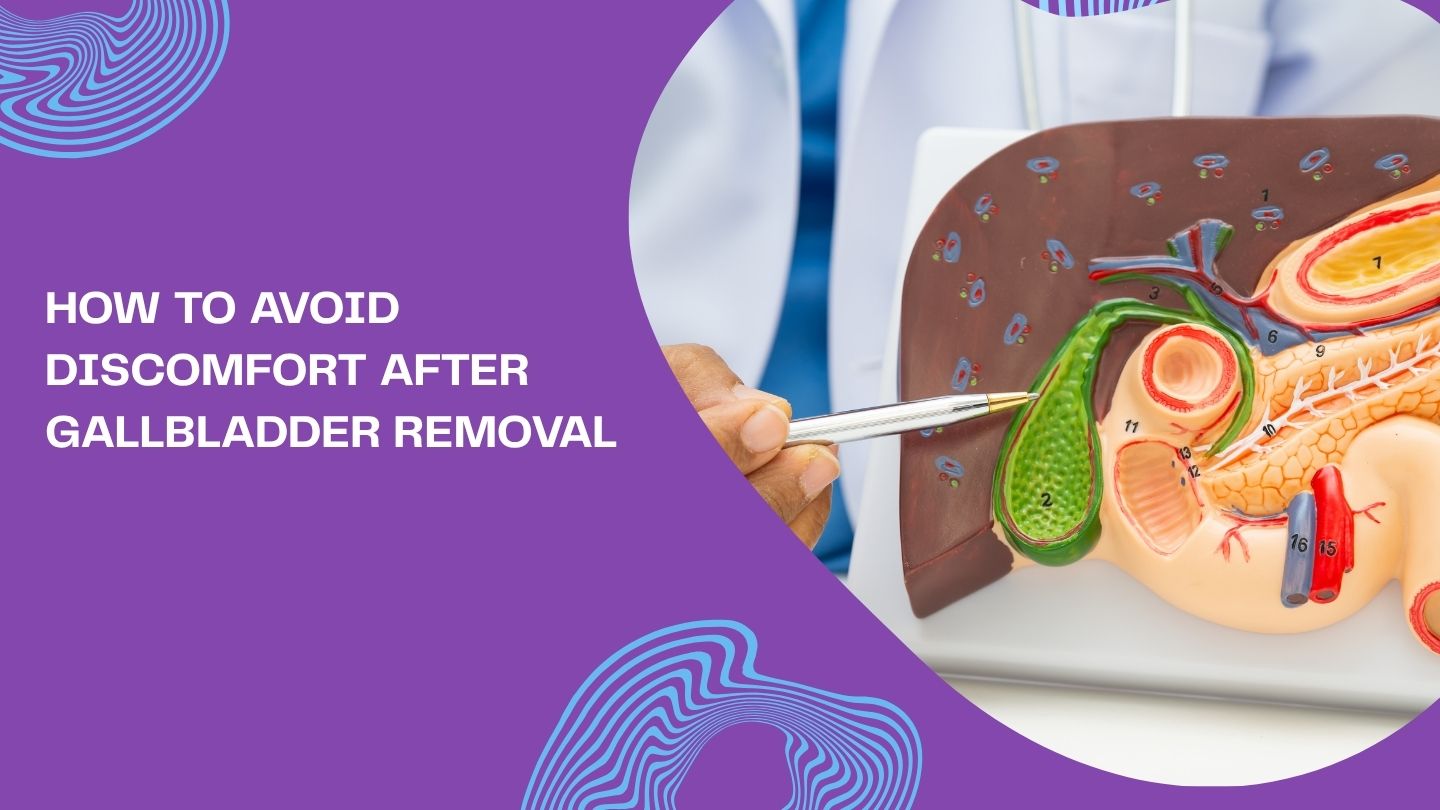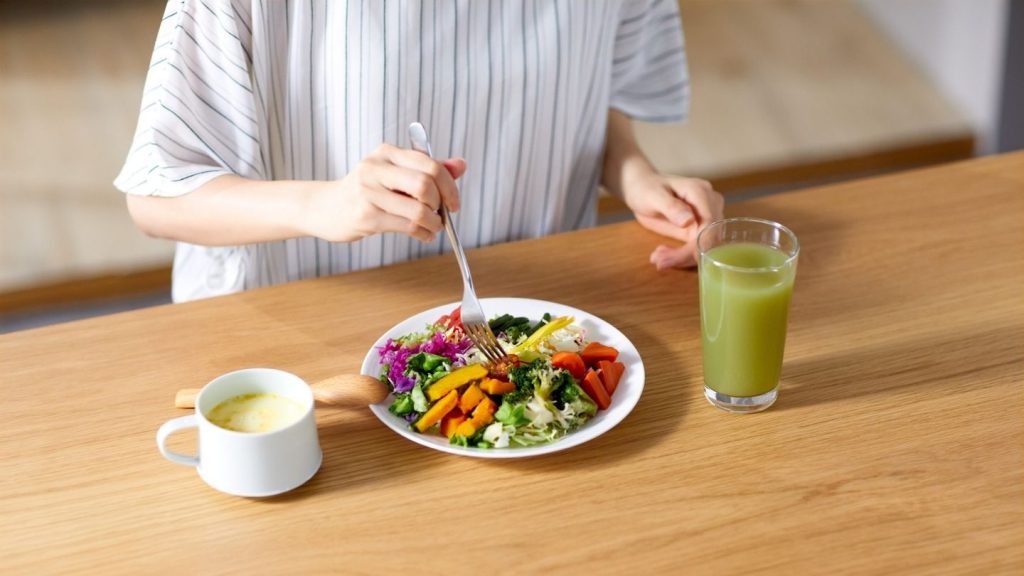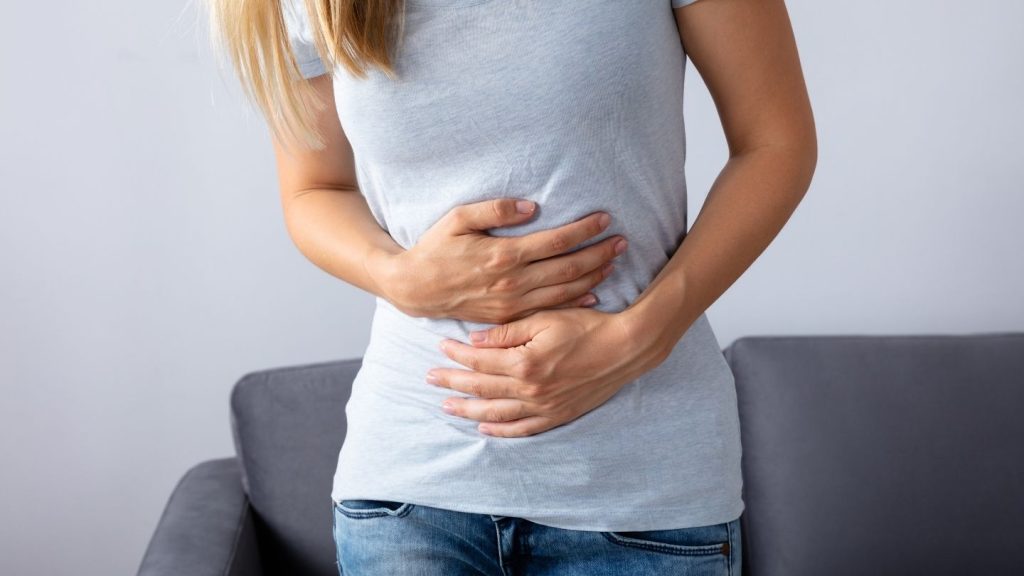
How to Avoid Discomfort After Gallbladder Removal
Post-surgery recovery requires a disciplined approach to minimize disruption and accelerate healing. Managing diet, activity levels, and hydration becomes essential to prevent unnecessary discomfort. A structured routine helps stabilize digestion and supports your body as it adjusts. Staying proactive allows you to maintain control and reduce setbacks. In this blog, you’ll gain targeted strategies to streamline your recovery and stay ahead of common post-operative challenges.
Key Takeaways
- Post-gallbladder removal, patients may experience digestive discomfort due to the direct flow of bile from the liver to the intestine, which can lead to gas, bloating, and diarrhea.
- Dietary adjustments, including a low-fat diet, smaller, more frequent meals, and gradual fiber introduction, are vital for managing symptoms and supporting recovery after gallbladder surgery.
- Staying hydrated and monitoring symptoms post-surgery are crucial for preventing complications, promoting digestive health, and ensuring a smooth recovery.
Understanding Gallbladder Removal and Its Impact
Gallbladder removal surgery, known medically as laparoscopic cholecystectomy, is a routine procedure performed to relieve patients from the painful symptoms associated with gallstones and other gallbladder diseases. The gallbladder itself is a small organ located beneath the liver, and its primary function is to store bile, a digestive fluid produced by the liver that helps in breaking down fats after the gallbladder is removed.
Once the gallbladder is removed, bile flows directly from the liver to the small intestine, which can disrupt the efficient digestion of fats. This change often leads to digestive discomfort, particularly when consuming high-fat foods. Patients may experience symptoms like:
- Gas
- Bloating
- Diarrhea
These symptoms are collectively known as post-cholecystectomy syndrome. They are the body’s response to the sudden absence of the gallbladder’s regulatory function in bile storage and release. This type of digestive imbalance can connect with broader reflux-related changes, which becomes clearer when recognizing the link between gallbladder function and the gallbladder-acid reflux connection.
These changes need to be understood to manage your new dietary needs and reduce discomfort. Awareness of potential complications, such as bile leakage and gastrointestinal issues, prepares you for proactive steps in your recovery journey. Early intervention and awareness are key to ensuring a smooth adjustment to life without a gallbladder.
Post-Surgery Diet Adjustments

Dietary adjustments are vital after gallbladder removal. The body must adapt to digesting fats without the concentrated bile stored in the gallbladder. Initially, giving your digestive system a break is important. In the first week post-surgery, focus on consuming liquids and soft foods. This gentle approach helps ease your body into the recovery process and minimizes the risk of gastrointestinal discomfort. Following a gallbladder removal diet can further support your recovery.
Eating smaller, more frequent meals as you recover can significantly aid digestion. This strategy ensures that your digestive system is not overwhelmed with large amounts of food at once, which could lead to bloating and diarrhea. Avoiding sugary and high-fat beverages is also advisable, as they can exacerbate gastrointestinal issues. Additionally, it is beneficial to eat smaller meals to avoid discomfort in the stomach. Dietary stability improves as patients align meal patterns with guidance grounded in what to eat after gallbladder surgery to minimize discomfort.
Maintaining a low-fat diet is important for long-term dietary management. Aim to keep your fat intake to a moderate level, around 20-30% of your total daily calories. This balance helps in preventing post-cholecystectomy syndrome and promotes overall digestive health. Embracing these dietary changes can make a significant difference in your comfort and well-being after gallbladder removal.
Importance of Hydration
Staying hydrated plays a pivotal role in your recovery and overall digestive health after gallbladder removal. Staying well-hydrated:
- Aids digestion and nutrient absorption, which are essential for your body’s healing process.
- Helps your body efficiently break down food.
- Prevents constipation, a common issue post-surgery.
Hydration also influences long-term digestive adaptation, reinforcing many of the benefits associated with the positive long-term effects of gallbladder removal. It is recommended to drink at least eight glasses of water daily to support your recovery. Proper hydration ensures smooth digestive system function, reducing discomfort risk and aiding nutrient absorption. Water is your best ally in maintaining digestive health during this critical period.
To avoid dehydration, steer clear of sugary drinks and alcohol, as they can contribute to gastrointestinal distress and hinder your recovery. Prioritizing hydration can significantly enhance your body’s recovery and adaptation post-gallbladder removal.
Gradual Introduction of Fiber
Introducing fiber back into your diet after gallbladder removal requires careful, gradual steps. Initially, many patients find it challenging to digest high-fiber foods due to the changes in their digestive system post-surgery. Incorporating soluble fiber can help regulate digestion and prevent the common post-gallbladder removal issue of diarrhea.
Start by reintroducing soft solids like boiled vegetables and lean proteins in the second week of your recovery. In the third week, gradually add more fiber-rich foods, such as cooked legumes, into your diet. Soluble fibers found in oats and barley are particularly beneficial and should be introduced gradually to avoid gastrointestinal discomfort. A structured fiber reintroduction becomes easier when understanding how postoperative sleep patterns relate to digestive rhythm, as outlined in promoting good sleep after gallbladder surgery.
Increasing high-fiber foods gradually prevents overwhelming your digestive system. This methodical approach ensures a smooth recovery and helps maintain digestive health without causing additional discomfort.
Managing Pain and Discomfort

Effective pain and discomfort management is crucial for a smooth recovery after gallbladder surgery. Typically, this involves taking prescribed pain medications to alleviate abdominal pain and ensure adequate symptom control. Following your aftercare instructions diligently and maintaining a consistent recovery pace helps avoid complications.
Various natural remedies, in addition to medication, can help reduce pain and avoid discomfort:
- Applying a heated compress can relax muscles and alleviate pain.
- Natural supplements like magnesium can aid in reducing pain symptoms and lowering the risk of gallstone formation.
- Dandelion tea may soothe gallbladder-related discomfort.
Some patients find changes in abdominal appearance during healing to be a natural part of the process, which aligns with insights into why my stomach is bigger after gallbladder surgery.
Communicating effectively with your healthcare providers and care team is essential. If you experience side effects from pain medication, inform your doctor to make necessary adjustments. This collaborative approach ensures that your pain management plan is effective and tailored to your needs.
Recognizing and Avoiding Trigger Foods
Minimizing digestive discomfort after gallbladder removal involves:
- Identifying and avoiding trigger foods.
- Avoiding high-fat foods, which can lead to significant digestive issues while your body adjusts.
- Initially limiting high-fat and high-fiber foods to give your digestive system time to adapt.
Spicy foods, processed foods, and sugary foods are often poorly tolerated post-surgery and should be avoided to prevent discomfort. Dairy products can also exacerbate symptoms such as diarrhea, making it essential to monitor their intake.
Recognizing your personal trigger foods is crucial to avoiding gastrointestinal discomfort. A food diary can effectively identify which foods cause issues and which are well-tolerated. This proactive approach helps in making informed dietary choices to support your recovery and overall digestive health.
Physical Activity and Recovery
Regular physical activity plays a significant role in your recovery process after gallbladder removal. Walking soon after surgery improves circulation and can help prevent blood clots and complications such as blood clots. Gentle exercises can aid in maintaining overall health and speed up the healing process.
Gradual increases in activity level based on comfort and healing are crucial. Follow these guidelines:
- Begin with gentle exercises.
- Slowly build up to more strenuous activities as your body allows.
- Avoid high-impact exercises for about 4 to 6 weeks post-surgery to prevent strain on your body.
Regular physical activity, even at a gentle pace, supports a smooth recovery journey and helps regain your strength and overall health. Listen to your body and adjust your activity level to ensure a balanced recovery process and promote speed healing, while also considering your recovery time until you are fully recovered.
Monitoring Symptoms
Monitoring your symptoms post-surgery is crucial for identifying potential complications early on. Important symptoms to monitor include:
- Bowel habits, since unusual changes can indicate issues such as pancreatitis or other digestive problems
- Persistent nausea
- Vomiting, which could signal complications that require medical attention
Symptoms like excessive pain, swelling, or pus around the surgical site should prompt a visit to your healthcare provider. Postoperative jaundice, characterized by yellowing of the skin and eyes, along with other symptoms like dark urine or significant increases in abdominal pain, may indicate serious issues such as bile leakage and should be addressed immediately. Staying alert to shifts in symptoms strengthens recovery efforts and mirrors the staged approach described in recovering from gallbladder surgery.
Regular follow-up appointments with your doctor are vital for a smooth recovery. Recognizing these symptoms and seeking timely medical care effectively manages serious complications and supports your healing process; complications can arise if these issues are left untreated.
Long-Term Lifestyle Changes
Long-term lifestyle changes are essential for maintaining digestive health and avoiding discomfort post-gallbladder removal. These include:
- Keeping a food diary to monitor food intake and symptoms
- Using the diary to identify better-tolerated foods
- Making informed dietary choices based on the diary
Maintaining a low-fat diet and incorporating lean protein into your meals prevents digestive issues and promotes overall health. Regular consultations with healthcare providers ensure you eat low-fat foods, fatty foods, and greasy foods, and your dietary and lifestyle changes are effective and tailored to your specific needs.
These adjustments support your digestive health and enhance your overall quality of life. Adopting these long-term changes allows you to enjoy a comfortable and healthy life after gallbladder removal.
Optimizing Post-Surgery Comfort
Managing recovery after gallbladder removal is fundamentally about consistency and informed decision-making. Aligning diet, hydration, and activity with your body’s new digestive patterns reduces discomfort and supports a smoother transition. By prioritizing gentle foods, avoiding triggers, and pacing your daily routine, you set yourself up for a controlled and predictable healing experience.
At Wellstar Comprehensive Bariatric Services, we provide patients undergoing gallbladder removal in Cobb County, Marietta, Smyrna, Austell, LaGrange, and West GA with evidence-based guidance that drives confident recovery. We support patients across a full spectrum of procedures, including gastric bypass and gastric sleeve, ensuring continuity of care throughout every stage of their recovery journey. If you’re seeking structured support, trusted clinical expertise, and a personalized pathway to minimize discomfort, our team is equipped to assist you every step of the way. Reach out to us to reinforce your recovery with specialized care and actionable direction.
Frequently Asked Questions
What dietary changes are necessary after gallbladder removal?
Following gallbladder removal, adopting a low-fat diet, eating smaller, more frequent meals, and avoiding sugary and high-fat beverages are essential to reduce gastrointestinal discomfort. These dietary changes can significantly enhance your recovery and overall well-being.
How much water should I drink daily after gallbladder surgery?
It is advisable to consume at least eight glasses of water daily after gallbladder surgery to facilitate digestion and promote recovery. Staying well-hydrated can significantly enhance your healing process.
What are the benefits of gradual physical activity post-surgery?
Gradual physical activity post-surgery enhances circulation, reduces the risk of complications, and promotes overall health during recovery. Engaging in light activities, like walking, can significantly aid in the healing process.
Which foods should be avoided to prevent discomfort after gallbladder removal?
To prevent discomfort after gallbladder removal, it is advisable to avoid high-fat foods, spicy foods, processed foods, sugary foods, and dairy products. This approach can help mitigate gastrointestinal issues.
What should I do if I experience persistent nausea or vomiting after surgery?
If you experience persistent nausea or vomiting after surgery, it is crucial to contact your healthcare provider for further evaluation, as these symptoms may indicate complications. Seeking prompt medical advice is essential for your recovery.
